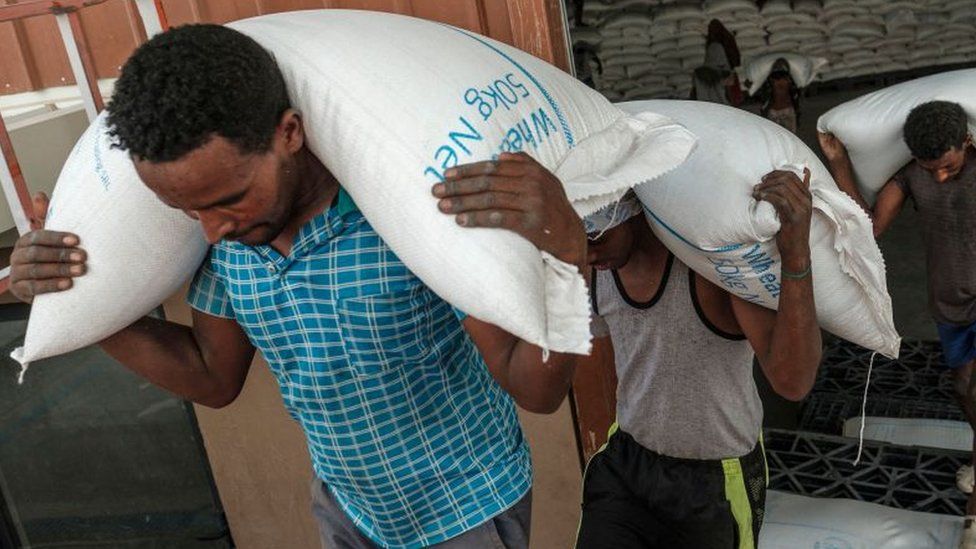-

-
-
Loading

Loading

Local authorities in Edaga Arbi and Adwa, towns in Ethiopia's Tigray region, have reported that over 200 people have died from starvation since July. The Tigray region, which has faced both drought and the consequences of war, is on the verge of a famine similar to the one witnessed in 1984, the year of the iconic Live Aid music event. However, referring to famine is a sensitive matter in Ethiopia, and the central government in Addis Ababa denies the looming crisis while claiming to provide aid. Nevertheless, healthcare professionals and humanitarian workers argue that the assistance is not arriving fast enough, leaving them incapable of saving lives. As a doctor in the city of Shire named Desta Kahsay explains, he witnesses continuous deaths, feeling helpless as he possesses the skills and knowledge to help his people, but lacks the means to do so. Many of those dying are young children and individuals. Tigray residents paint a bleak picture of the situation, with individuals like Abrehet Kiros regularly checking up on her elderly neighbor, who has lost her family due to the recent civil war. Kiros pleads for support from anyone able to help, highlighting the widespread destitution and hunger in the region. Last spring, when World Food Programme and USAid discovered alleged food aid looting, they suspended aid to Ethiopia for several months before resuming cautiously in December. Approximately 1,500 people reportedly died of starvation in Tigray during this aid halt. Overall, an estimated 20 million people in Ethiopia require food assistance due to conflicts, droughts, and floods, according to the UN. The Early Famine Warning Systems Network predicts that by mid-2024, the food crisis will become a nearly nationwide emergency. Currently, the food crisis is affecting the northern region of Amhara, which is experiencing a war, as well as parts of the south and Tigray. Analyst Alex de Waal highlights several factors exacerbating the situation in Tigray, including the aftermath of war, asset-stripping, displacement, unpaid salaries, and a severe drought. He warns that Ethiopia's food crisis could be as severe as or worse than that of 40 years ago, potentially resulting in the deaths of over half a million people if urgent action is not taken. Dr. Kahsay in Shire worries that many have already lost hope and accepted their fate of daily mourning and funerals.